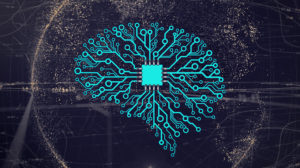Pierre Levy raccoglie una quantità di importanti contributi sul futuro della pedagogia di fronte alle opportunità offerte da internet e dalla presenza nei social network. Il tema generale dell’istruzione non è più soltanto la trasmissione di conoscenze ma il cambiamento culturale. L’Unesco lancia le sue raccomandazioni:
The learning activities make a difference. Across countries and classrooms, the characteristics of assigned classroom activities strongly predicted the 21st century skills that students exhibited in their work. Students are much more likely to learn to solve real-world problems and collaborate productively with their peers, for example, if their learning activities are carefully designed to offer opportunities for them to do these things. This finding suggests that professional development for innovative teaching might begin with lesson design.
ICT has great potential for supporting innovative pedagogies, but it is not a magic ingredient. In classrooms visited in this research, when students were using ICT they were most likely to be using it to support traditional instructional activities like looking up information and learning procedures. Activities like these are often the easiest places to start when teachers integrate ICT into instruction, but they are unlikely to help students learn more deeply, in contrast to activities like using ICT to access and analyze multiple data sources, explore visualizations of complex phenomena that are difficult to see with the naked eye, or collaborate in new ways with peers. This finding suggests that when considering ICT it is important to focus not on flash but on the student learning and 21st century skills that ICT can enable.
Important school-level supports tend to be present in schools with higher concentrations of innovative teaching. Based on survey data, in schools where teachers reported higher average levels of innovative teaching practices, they also tended to report:
– a higher frequency of teacher collaboration around teaching;
– professional development opportunities that were sustained and hands-on (such as practicing teaching methods or conducting research) rather than one-time and passive (such as attending a lecture-based workshop or observing a demonstration);
– access to technology within the classroom, rather than solely in stand-alone lab settings; and
– a professional culture aligned to support innovation, reflection, and meaningful discourse about new teaching practices.Coherent systemic support is also essential. Disconnects between policy mandates/supports and desired practice were found in most of the schools and all of the systems in our sample. For example, teachers were often being asked to innovate while being incented and judged solely by measures of the facts that students had acquired through traditional means, or given ICT to use without related curricular materials and models for ways to use it powerfully and effectively in subject matter learning. It was rare that teachers experienced standards, curriculum, professional development, assessments, and incentives that all aligned to support the development of students’ 21st century skills.
Manuel Castells osserva che la condizione dei ragazzi, in particolare, è cambiata. E che non c’è più distinzione tra virtuale e reale: le reti sociali sono in generale vissute con l’ausilio dell’internet senza che questo sia percepito come un’opzione. Qualunque politica dell’istruzione o a favore dei giovani va pensata tenendo conto di questo. La critica preconcetta dell’internet non aiuta. E i dati sulla correlazione tra uso della rete e benessere mostrano che un’interpretazione costruttiva dell’internet è più che benvenuta. Anche perché la rete diventa parte dell’ambiente urbano che si trasforma e si prepara al futuro. Un pezzo della Bbc ne discute esemplificando progetti.
Per Aaron Balick questo significa anche lavorare molto sulla consapevolezza. “Se un servizio ti è offerto gratuitamente questo vuol dire che tu sei il prodotto”. Cerchiamo riconoscimento. “Diventiamo il brand di noi stessi”. In Italia, il segno #sapevatelo, insomma, diventa ironicamente strategico.
Ma c’è anche una letteratura che accompagna questa vicenda culturale. Brian Hall ha raccolto alcuni testi che si sono rivelati fondamentali nella costruzione della cultura geek. Queste sono le sue proposte: Neuromancer; The Shockwave Rider; Stranger In A Strange Land; The Fountains of Paradise; Hyperion; I, Robot; Cryptonomicon. Se un commentatore vuole aggiungere i suoi titoli sarà benvenuto…






La pedagogia è strumento per eccellenza del cambiamento culturale, perché va a incidere direttamente nella mente degli individui in via di strutturazione, è una leva sociale di grande forza se, i docenti hanno essi stessi una buona formazione, interesse per i discenti e amore per il sapere di cui si fanno interpreti e paladini.